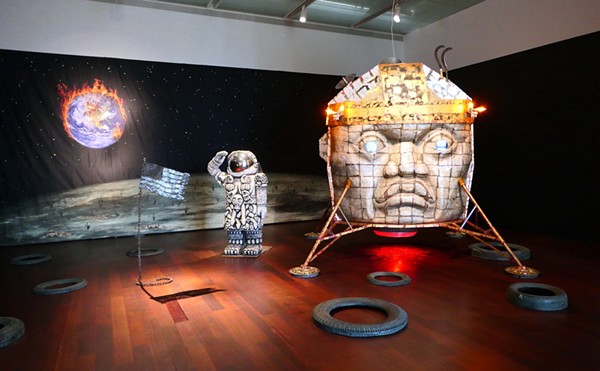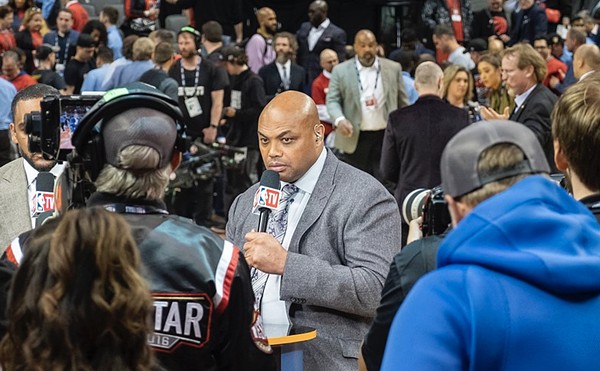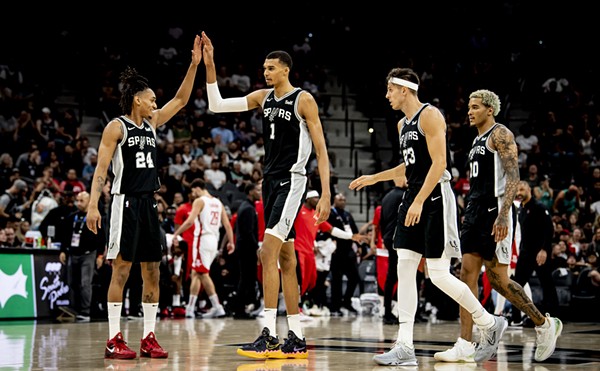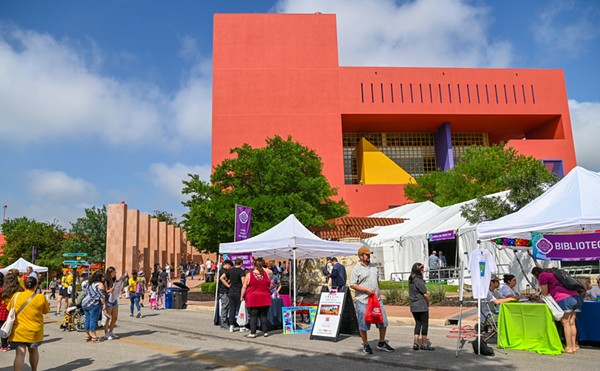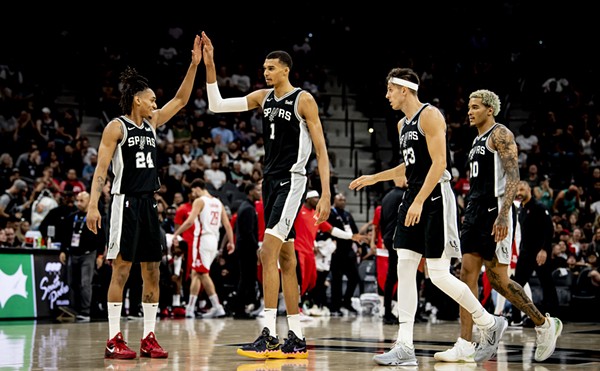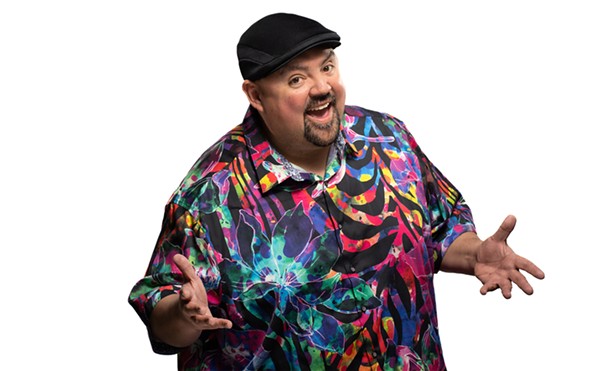“America I’ve given you all and now I’m nothing.”
— Allen Ginsberg, “America.”
One might be hard pressed to find a more apt person to honor during National Gay History Month than Allen Ginsberg — poet, activist, pacifist, ecologist, spiritual guru, Buddhist, holy bohemian, and gay-liberation trailblazer.
Talk about a positive role model for today’s youth, gay or otherwise. And yet students may have to actively search out Ginsberg’s work on their own, for public airwaves continue to censor his words. High schools and even some colleges have excluded his creative output from their acceptable curricula.
Although the writers of the 1950s Beat Generation didn’t set out to break sexual taboos per se, their sex, drugs, and bohemian way of living certainly contributed to that impression. Ginsberg lived openly as a homosexual since his college days. By 20 he had slept with the best minds of his generation, and later engaged in longtime affairs with both Jack Kerouac and Neal Cassidy, Jack’s heterosexual hero Dean Moriarty in On the Road.
Yet during the writing of “Howl,” Ginsberg fell in love and did the right thing — he exchanged marital vows with Peter Orlovsky more than a half-century ago. Richard Avedon photographed the naked newlyweds. Large posters were plastered from New York City to San Francisco in support of the then nascent gay-liberation movement.
“Howl” was an instant cause celebre — a poetic clarion call for sexual revolution, free speech, and free expression. Ginsberg became the most famous poet in these United States since Walt Whitman.
Still, the poem was seized and its publisher charged with obscenity. After it worked its way through the court system, “Howl” was ruled a work “of redeeming social importance.” The poem has been read and performed since with little ado. It is then both an ironic and sad commentary that on the 50th anniversary of that decision last week, public radio and TV stations did not broadcast “Howl” for fear that the FCC would deliver “draconian fines” that might bankrupt the offending stations.
Ginsberg came to UT Austin in the late 1960s in the midst of the Civil Rights struggle and the anti-Vietnam War protest. He was able to mobilize students — a feat protestors and peaceniks alike had been unable to accomplish. As a student filmmaker, I observed Ginsberg work his magic at readings, accompanied on his harmonium, and in conversations on campus as he addressed the concerns and disenfranchisement we students felt.
When black activist Stokely Carmichael delivered a black power speech at an open forum, it was Allen who made the assembled multitude chant. It incensed Carmichael, but the students had been won over by Ginsberg’s saner, pacifist message.
When he won the National Book Award for Poetry in 1972, Ginsberg sent partner Orlovsky to deliver his acceptance speech as a personal and public message to the homophobic literary world.
I saw Allen one final time at a reading and signing in East Hollywood in 1985. AIDS had begun to decimate the gay community. Instead of attending events celebrating the publication of his collected works, Ginsberg instead kept an overnight vigil at an Anti-Reagan AIDS rally at the U.S. Federal building.
I half-expected that he might remember his UT visit some 25 years earlier, but heavier concerns weighed. Instead I mentioned that one of his associates had requested a copy of my student film of his Austin visit for footage for a documentary, The Life and Times of Allen Ginsberg.
“You send it?”
I nodded in reply.
Despite the crowded storefront, he had a clerk find a copy of The Yage Letters, his correspondence with William Burroughs on shamans and curanderos. He signed it, blind-stamped it, and handed it to me. A gift.
He then folded his hands in prayer and bowed.
In underground filmmaker Jonas Mekas’s film Allen’s Last Three Days on Earth as a Spirit, he chronicles Ginsberg’s death from liver cancer in 1997. Perhaps the most moving moment is when a grief-stricken Orlovsky attempts to explain the loss of his life partner of nearly 50 years to the camera.
Ginsberg fought on the front lines of gay liberation in body and soul. Now that his groundbreaking work is under fire again, now that his best work is denied students to study in the context of great American literature, it is time to speak out against the censorship.
To this end, I hope that Gemini Ink will repeat this September’s uncensored, uncut performance-reading of “Howl” to protest the ongoing censorship of our artists. It would be an event worthy of our time and consideration.
Allen Ginsberg — a gay guru, a true modern literary hero, lives. •
________________________________________________
PHOTOGRAPHY
Allen Ginsberg: Beat Generation Photographer
10am-8pm Tue, 10am-5pm Wed-Sat, Noon-6pm Sun
Through Oct 14
$8 adult; $7 senior; $5 student; $3 children
San Antonio Museum of Art
200 W. Jones
(210) 978-8100
Samuseum.org




